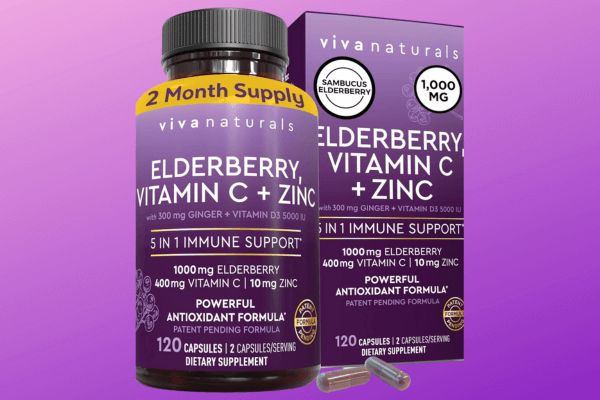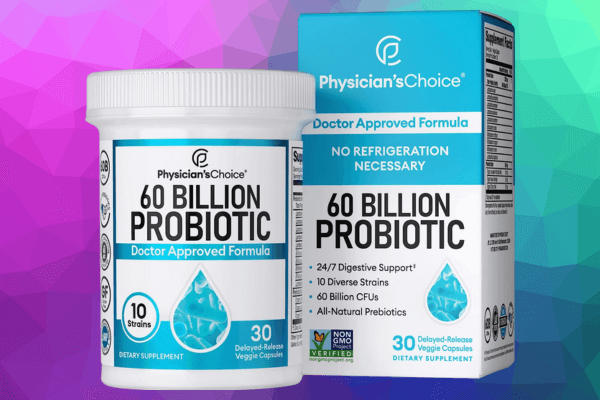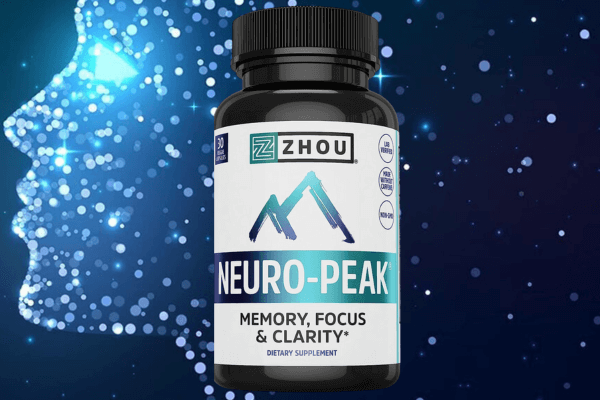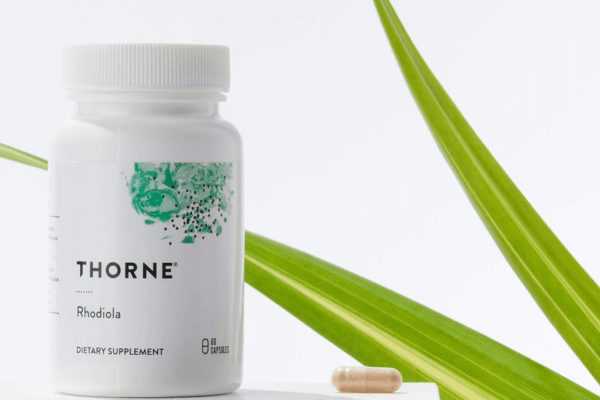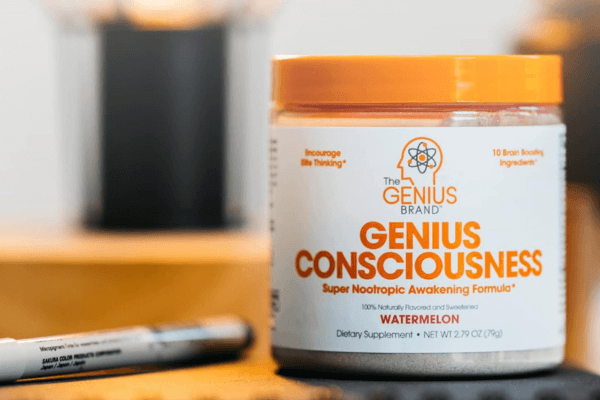Looking for the best supplements for ADHD to bolster concentration and calm? This concise guide dives into evidence-based options like Omega-3 fatty acids, zinc, and iron, detailing how they may help manage symptoms.
We approach these supplements with a critical eye, ensuring you understand their potential effectiveness and limitations. Remember, consulting with a healthcare professional is crucial to personalize your ADHD management plan.
Key Takeaways
- Nutritional supplements such as Omega-3 fatty acids, zinc, and iron have shown promise in managing ADHD symptoms by improving cognitive functions and brain health, though more research is needed to confirm their efficacy and optimal usage.
- The gut-brain axis plays a vital role in ADHD, with probiotics emerging as a potential supplement to improve symptoms by altering gut microbiota and reducing inflammation, although their comprehensive efficacy requires further study.
- Personalized supplementation strategies, created in consultation with healthcare professionals, can target individual nutritional deficiencies and ADHD symptoms, and integrating supplements into daily routines may enhance their effectiveness in managing the disorder.
Unlocking Focus: Top Supplements for ADHD Management
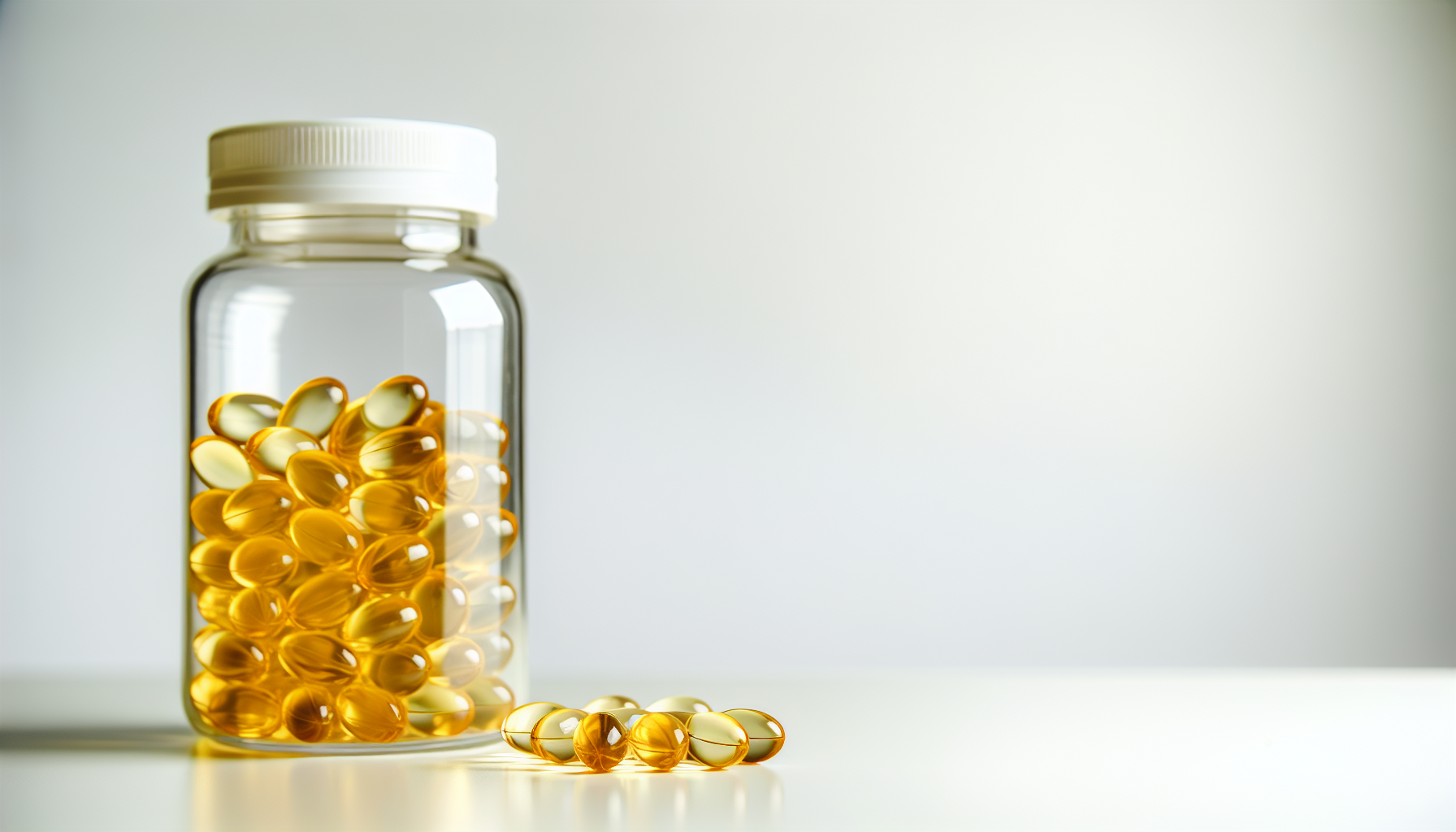
The realm of nutritional supplements offers a promising avenue in managing ADHD symptoms. These supplements, ranging from essential fatty acids to minerals, serve as potential tools for improving cognitive function and promoting brain development.
The underlying mechanisms through which these supplements operate could provide a fresh perspective on mitigating ADHD risk and managing symptoms without solely relying on conventional ADHD medications.
Now, let’s delve into the specifics of three key supplements that have demonstrated potential benefits for ADHD management: Omega-3 fatty acids, zinc, and iron. Each of these supplements plays a unique role in brain health and cognitive function, making them worthy of our attention.
Omega-3 Fatty Acids: Brain Health Boosters
Omega-3 fatty acids are integral components of the human diet, contributing significantly to brain health. They influence membrane fluidity, neurotransmission, and receptor function, which are crucial for the functioning of dopaminergic neurons, often impacted in neuropsychiatric disorders such as ADHD.
Research has linked supplementation with omega-3 fatty acids to enhancements in overall ADHD symptom scores, inattention, and hyperactivity. However, keep in mind that individual outcomes may vary, underlining the importance of additional comprehensive research.
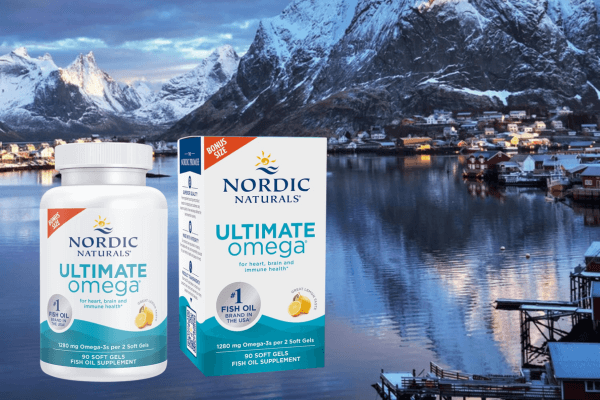
Nordic Naturals Ultimate Omega
High-Potency Omega-3, Promotes Brain & Heart Health
Interestingly, the potential role of gut bacteria in ADHD is also being explored. The gut microbiome, a complex ecosystem of bacteria residing in our intestines, holds a significant sway over our overall health.
It’s intriguing to consider how dietary patterns, including omega-3 intake, might influence this gut-brain connection, potentially impacting ADHD symptoms.
While the control group in animal studies has shown significant improvements with omega-3 supplementation, the results in patients with ADHD have been mixed, indicating the need for more research.
However, the potential benefits of omega-3 fatty acids for brain health and cognitive function make them a promising supplement for consideration.
When thinking about omega-3 supplementation, consulting a healthcare professional who can provide guidance tailored to your individual needs and symptoms is vital for a safe and effective ADHD management.
Zinc: The Mineral for Mental Sharpness

Zinc, a vital mineral, plays a significant role in enhancing attention in individuals with neurodevelopmental disorders like ADHD. Research has shown lower levels of zinc in individuals with ADHD, suggesting that zinc deficiency may be linked to brain dysfunction.
The supplementation of zinc suggests potential benefits as it contributes significantly to neurotransmitter function, potentially decreasing hyperactivity and impulsivity. These findings make zinc a compelling option for those seeking natural supplements for ADHD management.
However, as with any supplement, it’s crucial to be aware of potential side effects. Zinc supplementation may lead to stomach upset, including discomfort, nausea, diarrhea, and even heartburn. It is important to consider the potential impact of beneficial bacteria in the gut when supplementing with zinc.
Always seek advice from a healthcare professional before starting zinc supplementation or any supplementation regimen. They can offer guidance tailored to your individual needs and symptoms for a safe and effective ADHD management.
Iron: Essential for Neurodevelopment
Iron plays a pivotal role in our neurodevelopment, influencing the growth of brain structures, neurotransmitter systems, and cognitive function.
Insufficient iron during early stages of life can lead to hindered neurodevelopment and cognitive function, potentially contributing to ADHD symptoms.
Iron deficiency is thought to be responsible for up to 30% of ADHD severity, making it a crucial element to consider in managing this condition. It’s suggested that individuals with an ADHD diagnosis consume 80 mg/day of iron.
Research indicates that iron supplementation may enhance ADHD symptoms in children with low serum ferritin levels, pointing to a significant correlation between iron levels and ADHD symptom control.
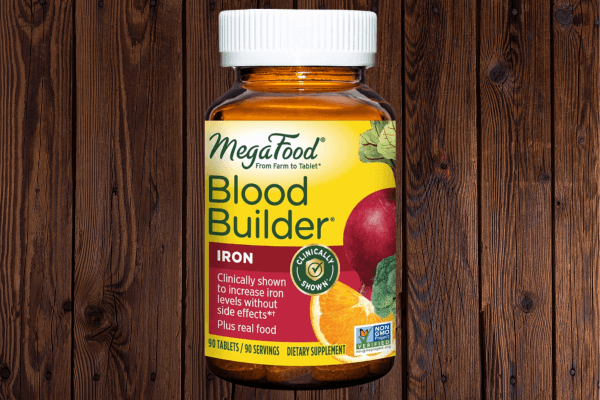
MegaFood Blood Builder
Iron Supplement, Vitamin C, and Vitamin B12 & Folic Acid
However, as with any supplement, potential side effects need consideration. The most prevalent side effect of iron supplementation in individuals with ADHD is stomach upset, which includes:
- discomfort
- nausea
- diarrhea
- constipation
- heartburn
It’s crucial to monitor these side effects when initiating iron supplementation.
The potential benefits of early probiotic intervention are also worth considering. Probiotics might help manage potential gastrointestinal issues associated with iron supplementation, making them a worthwhile addition to a holistic ADHD management strategy.
Always seek advice from a healthcare professional before starting iron supplementation. They can offer guidance tailored to your individual needs and symptoms for a safe and effective ADHD management.
Nourishing the Gut-Brain Axis: Probiotics' Role in ADHD
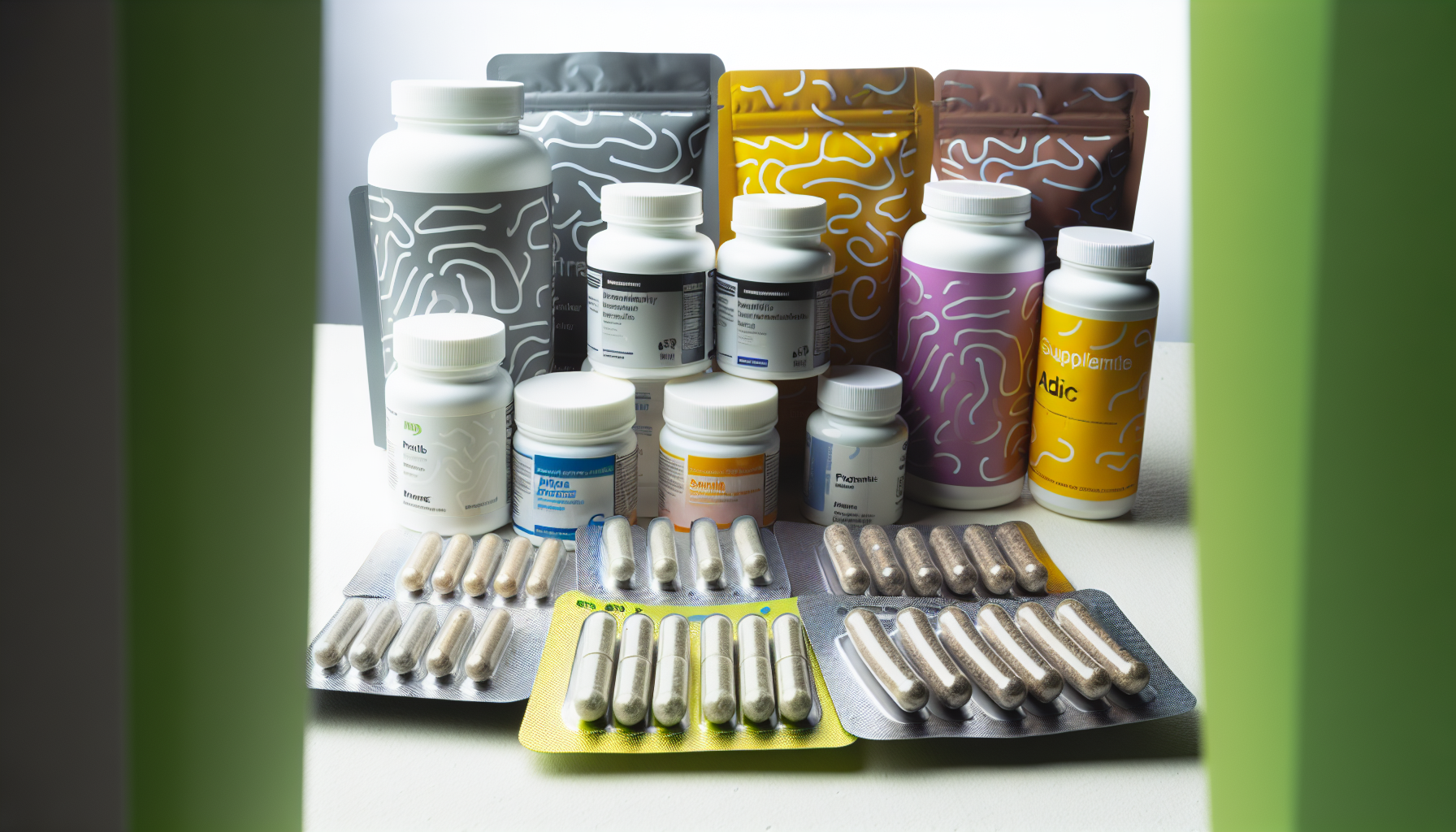
Beyond essential fats, minerals, and vitamins, there’s another category of supplements that’s generating considerable interest in ADHD management: probiotics. These beneficial bacteria are crucial for maintaining a healthy gut, which, in turn, plays a significant role in brain health.
The gut-brain axis, a term referring to the two-way communication between the gut microbiome and the central nervous system, is thought to play a role in ADHD. Changes in the gut-brain axis can contribute to the emergence of different neurological and neurodevelopmental conditions, such as:
- ADHD
- Autism
- Anxiety disorders
- Depression
Understanding and addressing the gut-brain axis may provide new insights and potential treatments for these conditions.
Probiotics have the potential to mitigate impulsive, compulsive, and aggressive behaviors in individuals with ADHD through modification of the gut microbiota. While some studies have indicated improvements in clinical symptoms, further research is necessary to establish their comprehensive efficacy.
Healthcare professionals commonly recommend probiotics containing Lactobacillus and Bifidobacterium strains for individuals with ADHD, as they’ve shown potential benefits in alleviating symptoms.
However, it’s essential to monitor the effects of probiotics on gut health, and stool samples can be a useful tool for assessing changes in the gut microbiome.
The Microbiome and Mental Health
The gut-brain axis plays a pivotal role in mental health, including psychiatric disorders. Imbalances in gut microbiota could influence the manifestation of ADHD symptoms.
Inflammation in the gut can contribute to the development of ADHD, and certain gut microbiome profiles in infants may elevate the likelihood of developing the condition, potentially leading to various mental health symptoms.
The gut-brain axis fulfills functions in mental health and supports the immune system by:
- regulating metabolic functions
- possessing anti-inflammatory and antiapoptotic properties
- supporting neurogenesis
- directly influencing physical and mental well-being
Understanding this connection between the gut microbiome and mental health can be pivotal in managing ADHD symptoms.
Indeed, an imbalance in gut microbiota can contribute to ADHD symptoms through the induction of inflammation in the gut lining, which can result in the translocation of toxins and detrimental substances into the bloodstream.
This inflammatory process can adversely affect the brain and play a role in the development of ADHD symptoms.
While the gut-brain axis and its influence on ADHD is a complex subject requiring further research, the potential role of probiotics in managing these symptoms is an intriguing area of exploration. As with any supplementation regime, always consult a healthcare professional to ensure appropriate and safe usage.
Balancing the Internal Ecosystem
Balancing the gut microbiota using probiotics could potentially improve ADHD symptoms, as probiotics can help restore balance to the gut ecosystem. Probiotics, specifically Lactobacillus and Bifidobacterium strains, have demonstrated the ability to enhance various aspects of ADHD symptoms, including:
- Mood
- Hyperactivity
- Cognitive function
- Digestive health
- Immune function
Research has shown disparities in the microbial composition in individuals with ADHD. For instance, there is a significant increase in the genus Bifidobacterium within the phylum Actinobacteria in the ADHD cohort, which may be linked to altered reward anticipation responses.
Healthcare professionals often recommend Lactobacillus plantarum and Lactobacillus rhamnosus as effective strains of probiotics for managing ADHD. These strains have demonstrated promising results in scientific research, offering potential benefits for ADHD symptom management.
As with any supplement, consulting a healthcare professional before starting a probiotic regimen is key. They can provide guidance based on your individual needs and symptoms, ensuring a safe and effective approach to managing ADHD.
Herbal Allies: Natural Supplements for ADHD
In addition to the nutritional supplements we’ve discussed so far, there are also herbal supplements that show promise in managing ADHD symptoms. These herbal allies, including adaptogens and natural cognitive enhancers, provide alternative avenues for ADHD management.
Adaptogens, natural substances that help the body adapt to stress and promote balance, are gaining attention for their potential benefits in ADHD. Similarly, natural cognitive enhancers may improve attention and focus in ADHD, offering a more holistic method for managing symptoms.
However, the evidence supporting the effectiveness of these herbal supplements is either lacking or constrained. Therefore, always consult a healthcare professional before starting any herbal supplement regimen for ADHD to ensure safe and appropriate management of symptoms.
The Adaptogens: Stress Response Modulators

Adaptogens such as Ashwagandha and Rhodiola rosea can contribute to the management of ADHD symptoms by promoting relaxation, reducing anxiety, and providing a calming effect.
Their mechanism of action involves influencing body tissues and organs to diminish stress and fatigue, boosting non-specific resistance to stress, and reducing sensitivity to stressors, resulting in enhanced stress protection and prolonged stress management.
The suggested dosage for Rhodiola rosea begins at 50mg/day and may be raised by 50mg every 5–7 days, up to a maximum of 500mg/day. Red ginseng has been researched with a daily dose of 1,000mg for eight weeks.
However, as with any supplement, it’s crucial to consult with a healthcare professional for guidance based on your individual needs and symptoms.
Adaptogens modulate the stress response in individuals with ADHD by suppressing the increase of phosphorylated stress, activating the adaptive stress response to reduce chronic inflammation, and minimizing stress reactions, thus providing protection against the long-term effects of stress.
By modulating the body’s stress response, they potentially offer a natural alternative for managing ADHD symptoms.
However, more comprehensive research is needed to validate these findings and to explore the full potential of adaptogens in ADHD management. Their potential benefits make them a promising avenue of exploration.
Always seek advice from a healthcare professional before starting any adaptogen regimen for ADHD. They can offer guidance tailored to your individual needs and symptoms for a safe and effective ADHD management.
Cognitive Enhancers from Nature
Natural cognitive enhancers enhance focus and attention in individuals with ADHD by acting on neurotransmitters like norepinephrine, dopamine, and serotonin, thereby promoting improved cognitive function.
They offer a natural alternative to traditional ADHD medications, potentially providing benefits without the side effects associated with conventional treatment options.
Research on natural cognitive enhancers for ADHD is limited, with most studies focusing on immediate effects and comparing them to the influence of ADHD stimulant medications as cognitive enhancers.
Although they may offer modest enhancements in concentration and cognitive function, traditional ADHD medication generally has more robust evidence backing its effectiveness, as it undergoes rigorous clinical trials.
Therefore, while natural cognitive enhancers may provide some benefits for individuals with ADHD, it’s essential to approach these supplements with careful consideration. More research is needed to fully understand their potential benefits and possible side effects.
Before starting to use natural cognitive enhancers, seek advice from a healthcare professional. They can provide guidance based on your individual needs and symptoms, ensuring a safe and effective approach to managing ADHD.
Vitamins and Minerals: The Building Blocks of Brain Health

Vitamins and minerals are the building blocks of health, playing essential roles in various bodily functions. They serve various functions within the central nervous system, potentially contributing to the maintenance of brain health and optimal functioning.
Addressing nutritional deficiencies is a key aspect of ADHD management, as deficiencies in certain nutrients can impact ADHD symptoms and cognitive function.
Moreover, the concept of nutrient synergy, where two or more nutrients working together have a greater physiological impact on the body than when each nutrient is consumed alone, is worth considering in ADHD management.
As we delve deeper into this topic, we’ll explore the importance of addressing nutritional deficiencies and the potential synergistic effects of vitamins and minerals for optimal brain function in ADHD management.
Addressing Nutritional Deficiencies
Nutritional deficiencies can have a significant impact on ADHD symptoms. Some key nutrients that are important for managing ADHD include:
- Zinc
- Magnesium
- Ferritin
- Omega-3 fatty acids
Deficiencies in these nutrients can contribute to the development of attention deficit hyperactivity disorder (ADHD), also known as deficit hyperactivity disorder adhd.
Patients with ADHD have been found to have reduced levels of the following essential nutrients:
- Vitamin D
- Zinc
- Ferritin
- Magnesium
Therefore, ensuring adequate intake of these nutrients can be an integral part of managing ADHD symptoms.
Addressing these deficiencies requires a comprehensive understanding of an individual’s dietary intake and nutritional needs. This is where a healthcare professional can provide valuable guidance, helping to identify potential deficiencies and recommend suitable supplements.
As with any supplementation regime, it’s essential to consult a healthcare professional before starting. They can provide guidance based on your individual needs and symptoms, ensuring a safe and effective approach to managing ADHD.
Synergistic Effects for Optimal Function
The concept of nutrient synergy is an important aspect of ADHD management. When two or more nutrients work together, they have a greater physiological impact on the body than when each nutrient is consumed alone.
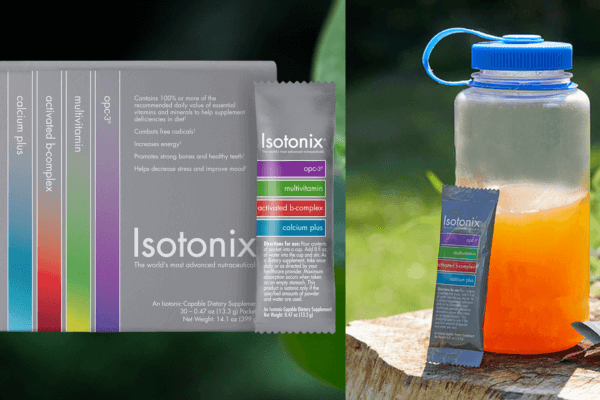
Isotonix OPC-3
Boost Your B Vitamins, Increases Energy & Improves Mood, Most Powerful Antioxidant Supplement on market.
Vitamins and minerals, including:
- B vitamins
- Vitamin C
- Iron
- Magnesium
- Zinc
can have significant functions in promoting optimal brain function. They have the potential to enhance cognitive function, safeguard the brain, and contribute to overall brain health.
Specific nutritional supplements that have been found to be beneficial for managing ADHD include:
- Zinc
- Magnesium
- Iron
- Melatonin
- Omega-3 fatty acids
Research has demonstrated that dietary supplementation with zinc and iron can result in improvements in the severity of ADHD symptoms.
As with any supplement, consulting a healthcare professional before starting a regimen with vitamins and minerals is key. They can provide guidance based on your individual needs and symptoms, ensuring a safe and effective approach to managing ADHD.
Personalizing ADHD Supplementation: A Tailored Approach
Personalizing ADHD supplementation involves customizing the usage of supplements to address the specific requirements and symptoms of individuals with ADHD.
This tailored approach enables targeted supplementation to address the specific nutritional deficiencies or imbalances that contribute to each individual’s symptoms.
In this section, we’ll explore the importance of consulting professionals in creating a custom supplementation plan and strategies for integrating supplements into daily routines to support ADHD management.
Consulting Professionals: Creating a Custom Plan
Creating a personalized supplement plan for ADHD is an important step in managing the condition effectively.
By working with healthcare professionals, individuals can receive tailored advice on supplementation, ensuring the selection of appropriate supplements based on individual health requirements, symptoms, and reactions to supplementation.
Healthcare professionals consider factors such as individual nutrient deficiencies, ADHD symptoms, and overall health in order to devise a customized supplement plan that effectively caters to the individual’s specific requirements.
The use of a combination of supplements and vitamins can enhance the effectiveness of ADHD medication and target particular symptoms such as inattention, offering a more holistic method for managing symptoms. This tailored approach ensures the best possible outcomes for each individual.
Engaging healthcare professionals is crucial to guarantee the safety, effectiveness, and customization of the supplement regimen based on the individual’s distinct health profile and ADHD symptoms.
Always seek advice from a healthcare professional before starting any supplementation regimen. They can offer guidance tailored to your individual needs and symptoms for a safe and effective ADHD management.
Integrating Supplements into Daily Routines
Incorporating supplements into daily routines is a practical approach to support ADHD management. Effective methods for incorporating dietary supplements into a daily routine for ADHD management involve including:
- Zinc
- Iron
- Magnesium
- Fiber
in the diet to regulate dopamine production and alleviate ADHD symptoms.
Specific nutritional supplements that may aid in improving ADHD symptoms include:
- Magnesium
- Vitamin D
- Omega-3 fatty acids
- Melatonin
- Zinc
- Ginkgo biloba
- Iron
- A multi-vitamin
However, it’s important to maintain a regular schedule of taking supplements for ADHD to ensure their effectiveness.
A method to maintain a regular schedule of taking supplements for ADHD is to utilize a pillbox with compartments designated for each day of the week. This approach aids in the organization and monitoring of supplement intake.
The effectiveness of supplements for ADHD, such as Omega-3 Essential Fatty Acids, is generally not significantly influenced by the time of day and can typically be taken at any time.
That being said, healthcare professionals often provide specific guidelines on when to take certain supplements based on their mechanism of action and potential interactions with other medications or nutrients.
Before starting to incorporate dietary supplements for ADHD into your routine, seek advice from a healthcare professional. They can provide guidance based on your individual needs and symptoms, ensuring a safe and effective approach to managing ADHD.
Summary
Throughout this blog post, we’ve explored various supplements and their potential benefits for managing ADHD symptoms. From essential fatty acids and minerals to probiotics and herbal supplements, each offers unique potential in promoting brain health and improving cognitive function.
While more research is needed to fully understand the benefits and potential side effects of these supplements, their potential makes them a valuable avenue of exploration for individuals living with ADHD.
Always consult a healthcare professional before starting any supplementation regimen for ADHD to ensure a safe and effective approach to symptom management.
Frequently Asked Questions
What is the best focus supplement for ADHD?
The best focus supplement for ADHD may include Modafinil, Piracetam, Noopept, Ginkgo Biloba, L-Tyrosine, Ginseng, and Bacopa Monnieri. These are considered to be effective cognitive enhancers for individuals with ADHD.
What helps ADHD the most?
The most effective treatments for ADHD are medication and therapy. Studies have shown that medication is effective for about 80% of children with ADHD, but for those who prefer to avoid medication, behavior therapy is also a viable option.
What is the most effective herb for ADHD?
Ashwagandha has been found to be effective in improving attention, executive functioning, and stabilizing stress response in individuals with ADHD. Other options like Gingko Biloba, Bacopa monnieri, and Saffron are also beneficial for brain health and can help manage symptoms of ADHD.
Can ADHD cause digestive issues?
Yes, ADHD can cause digestive issues, as shown by higher gastrointestinal symptoms and severity index scores in children with ADHD compared to healthy controls. This suggests a potential link between ADHD and altered digestive health.
Is it safe to start a supplementation regimen for ADHD without consulting a healthcare professional?
No, it is not safe to start a supplementation regimen for ADHD without consulting a healthcare professional to ensure safe and appropriate management of symptoms.
Looking for the best products? We've got you covered! Our editors have handpicked each item on this list. EisonReports may receive a share of sales or compensation if you choose to make a purchase through the provided links. Reviews have been edited for brevity and clarity. Enjoy discovering products to enhance your life!




